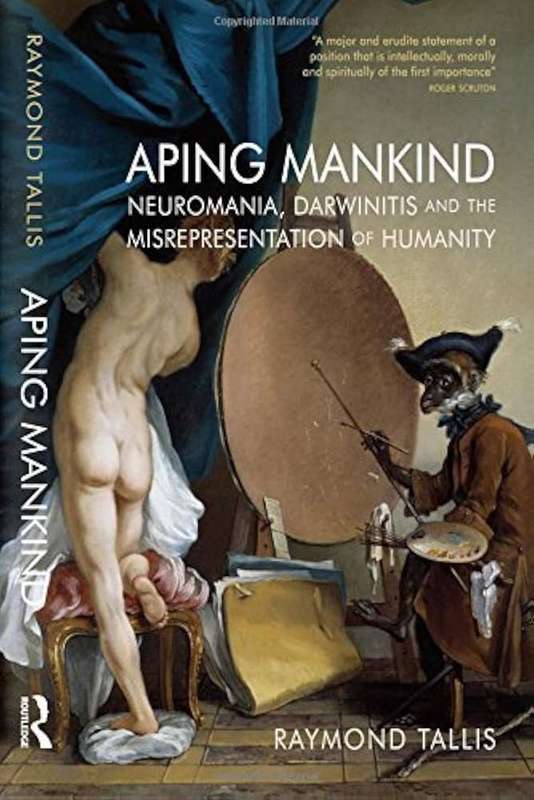
Aping Mankind: Neuromania, Darwinitis and the Misrepresentation of Humanity
Check my rate
| Main centres: | 1-3 business days |
| Regional areas: | 3-4 business days |
| Remote areas: | 3-5 business days |

| Main centres: | 1-3 business days |
| Regional areas: | 3-4 business days |
| Remote areas: | 3-5 business days |
Published by Acumen, 2011, hardcover, index, 386 pages, condition: new.
In a devastating critique Raymond Tallis exposes the exaggerated claims made for the ability of neuroscience and evolutionary theory to explain human consciousness, behaviour, culture and society.
While readily acknowledging the astounding progress neuroscience has made in helping us understand how the brain works, Tallis directs his guns at neurosciences dark companion "Neuromania" as he describes it the belief that brain activity is not merely a necessary but a sufficient condition for human consciousness and that consequently our everyday behaviour can be entirely understood in neural terms.
With the formidable acuity and precision of both clinician and philosopher, Tallis dismantles the idea that "we are our brains", which has given rise to a plethora of neuro-prefixed pseudo-disciplines laying claim to explain everything from art and literature to criminality and religious belief, and shows it to be confused and fallacious, and an abuse of the prestige of science, one that sidesteps a whole range of mindbody problems.
The belief that human beings can be understood essentially in biological terms is a serious obstacle, argues Tallis, to clear thinking about what human beings are and what they might become. To explain everyday behaviour in Darwinian terms and to identify human consciousness with the activity of the evolved brain denies human uniqueness, and by minimising the differences between us and our nearest animal kin, misrepresents what we are, offering a grotesquely simplified and degrading account of humanity. We are, shows Tallis, infinitely more interesting and complex than we appear in the mirror of biologism.
Combative, fearless and always thought-provoking, Aping Mankind is an important book, one that scientists, cultural commentators and policy-makers cannot ignore.
"I actually finished this a week after getting it early last month. It's one of those books that I wrote lots of notes alongside and I haven't yet had time to do a collated review but I will do one later as I think it's an important book. Just a few points here. First, there is an awful lot I disagree with. That's fine. That's how it should be. That's what conversations produce, discussions, arguments. But the book itself is well written, well structured, fair and honest: it is often rhetorical, ironic, downright sarcastic and vituperative but it wears it well. The Launcelott Spratt bombastic tone is a bit annoying at times but also kind of endearing. The main thing is, Tallis has given us a swashbuckling demolition job on Neuromania and the horrendous drift towards identifying the mind with the brain. What's more, he shows clearly why this is not some arcane academic dispute but of central importance to our society and culture. I cannot think of a more fortuitous book to come my way after the despair induced by that dreadful Master and His Emissary by Iain McGilchrist. I have reviewed that book and am most concerned that my low rating of it is against the grain. Why, there are respectable people out there who think McGilchrist is 'erudite' because he has an average knowledge of art, literature and philosophy. Curiously, Mary Midgley has blurb on the back of McGilchrist's book praising it, and blurb on the back of Tallis's book praising that too - even though the latter refers to the former as representing the extremest form of Neuromania. That's philosophers for you. Anyway, I'll come back to this soon."